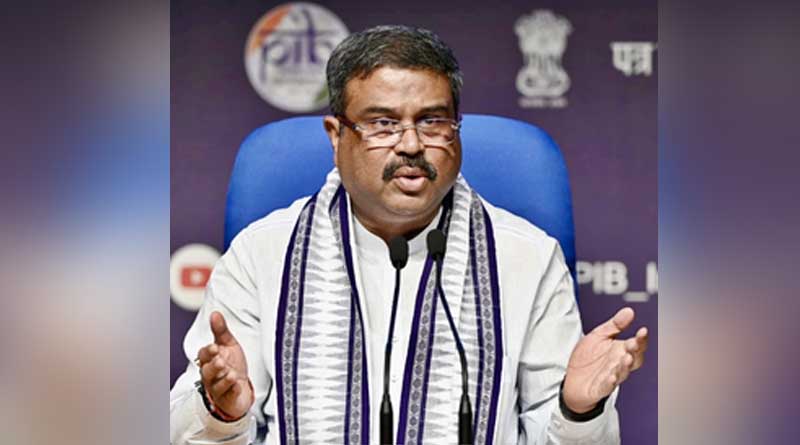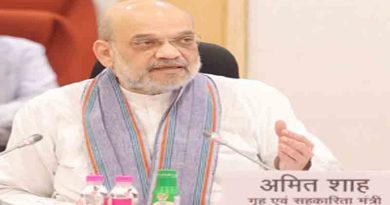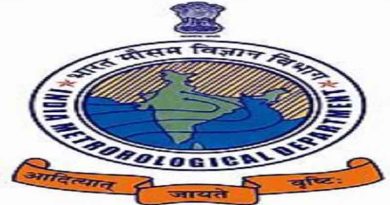NEP 2020 policy of the people, by the people and for the future of people: Dharmendra Pradhan
New Delhi: Union Minister of Education Dharmendra Pradhan on Wednesday hit out at Congress leader Sonia Gandhi, saying that corruption and governance deficit were the defining features of the country’s educational past, and the NEP 2020 represents a decisive break from this inglorious past.
In a newspaper article, The Hindu, shared by the Minister on his X handle, he said that NEP 2020 was not merely an education reform but “it is the intellectual decolonisation that India had awaited for a long time” and is the policy of the people, by the people and for the future of the people.
Sonia Gandhi recently accused the Modi-led government at the Centre of following an agenda “leading to damaging consequences in the domain of education.” The veteran Congress leader said there are ‘3Cs’ that haunt Indian education today — centralisation, commercialisation and communalisation.
In a detailed rebuttal to Sonia Gandhi’s article in the same newspaper, Minister Pradhan says he writes to showcase the true picture of India’s educational transformation.
He said it has been argued that the education system in India has veered off its course in the last 11 years of the Narendra Modi government. “In fact, nothing could be further from the truth. The country that witnessed the monumental neglect of the education system by previous governments is deeply aware of the unpleasant truth. While nations across the world reimagined education for a rapidly evolving world, India’s educational framework remained trapped in a time capsule, with the last major policy update in 1986, which was marginally amended in 1992, the minister said.
He said this was a deliberate perpetuation of colonial mindsets accompanied by a move to insulate the country from rapid technological changes taking place in the world.
Describing what past policy was like, Pradhan said corruption and a governance deficit were the defining features of the country’s educational past. “Public universities were systematically starved of funds. Unregulated private institutions mushroomed into degree mills. Those who suffer from selective amnesia need to be reminded of the infamous Deemed University scandal of 2009 University status was granted to 44 private institutions without proper evaluation, with many found guilty of financial irregularities. Political interference in education was rampant,” he said.
The Minister said that institutions like the University Grants Commission and the All India Council for Technical Education became instruments of control rather than enablers of excellence, and appointments to leadership in universities were based on political loyalty.
He said that textbooks deliberately downplayed the contributions of revolutionaries such as Shaheed Bhagat Singh, Chandra Shekhar Azad, Veer Savarkar and others while portraying uncomfortable historical truths about foreign invasions. “Historical narratives were carefully curated to serve partisan interests. India’s diverse cultural and intellectual traditions were systematically marginalised. All of these contributed toward creating an education system that remained disconnected from India’s glorious past and devoid of civilisational ethos,” he wrote in the article.
Defending the National Education Policy of 2020, the Minister said it represents a decisive break from this inglorious past and is a product of the most extensive democratic consultations in India’s policy history. “Based on the five pillars of access, equity, quality, affordability and accountability, the NEP 2020 is a policy of the people, by the people and for the future of the people,” he said.
He said one of its primary objectives is to correct structural inequities inherited from centralised, rigid and elitist frameworks. With this transformative approach, the enrolment of Scheduled Castes (SC) in higher education has increased by 50 per cent, Scheduled Tribes (ST) by 75 per cent, and Other Backward Classes by 54 per cent since 2014-15.
The Minister said women’s empowerment was at the heart of the reforms. He cited statistics to prove the point and also to show that there has been tremendous growth since 2014 when the Modi-led NDA took over the reins at the Centre. Female enrollment across all categories has grown by an impressive 38.8 per cent, crossing 2.18 crore in 2022-23. Among Muslim minority students, female enrolment rose by 57.5 per cent.









